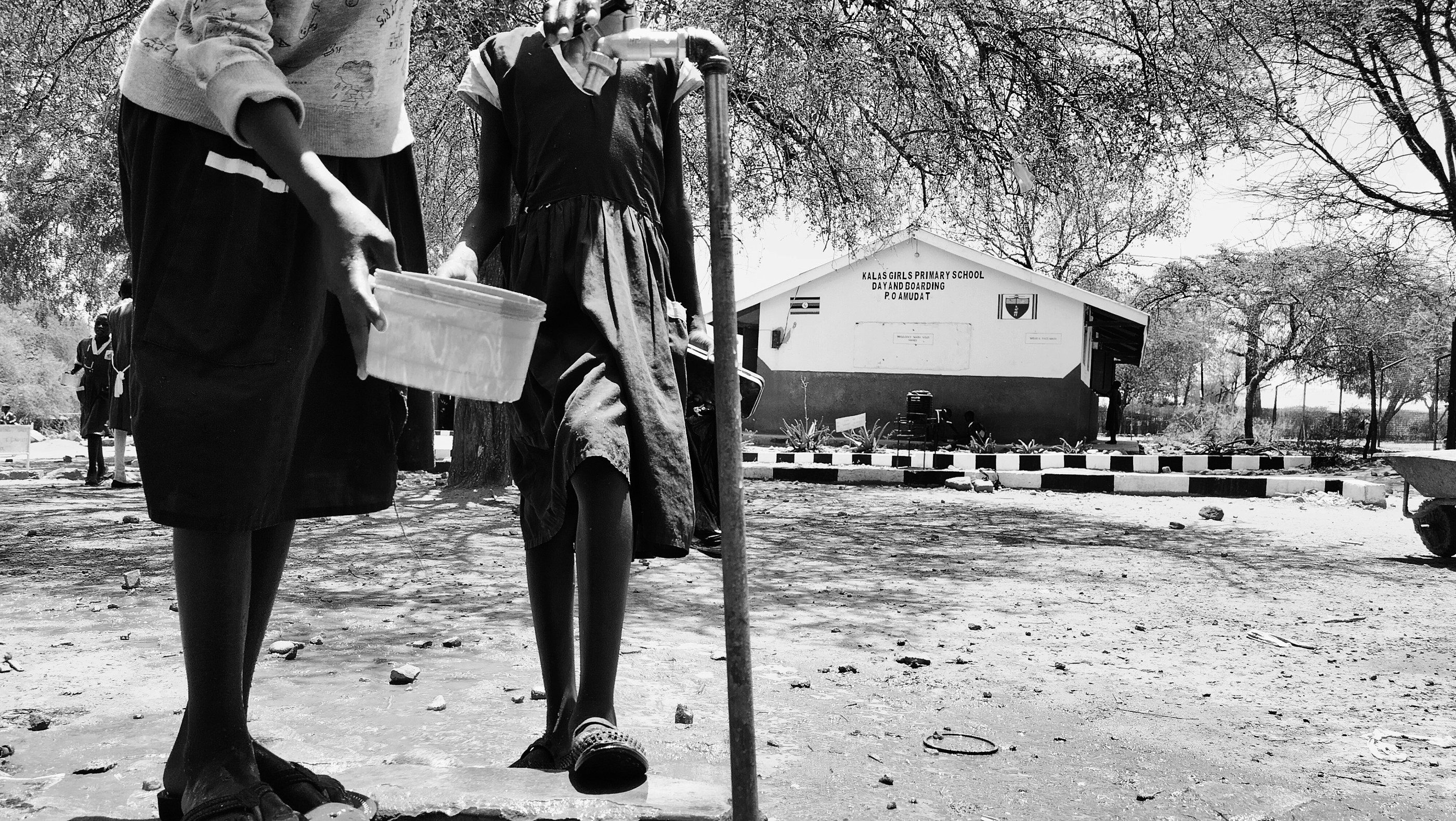Feature
When will the tap flow?
Photo essay by Tusiime Tutu
Karamoja region is considered one of the regions in Uganda battling an array of crises including, poverty, child marriages, female genital mutilation and climate difficulties. Depending on where one is in the region, the weather patterns may differ, but they range from long dry spells to erratic flooding rains.
Weather conditions are vital to the education of children in the region. When it rains erratically, the water floods up pathways and roads, making it impossible for children to make it to school. The flip side is, with the long winding dry spells that come with strong winds, children are forced to interrupt their schoolwork in search of some replenishing liquid to comfort the body from the dry environment.
In February 2023, I travelled to Karamoja region, specifically to Amudat District. Amudat district premises a unique school in the region. This mission school established by the catholic mission in 1964, has since 2013 operated as a rescue shelter for girls running away from child marriages, which are custom with in the region. Even during the COVID-19 pandemic lockdowns, the school stayed operational.
As a girl’s school, education and support to girls’ health is important and requires proper water and sanitary facilities. But since the school is in a region that struggles with inadequate water facilities, the care for these teenage girls that run away from child marriages, some of whom already have children, is even more difficult. Luckily the school has access to a tap by National Water and Sewerage Corporation (NWSC) which runs clean water to the girls at specific times of the day. Due to the weather-based pressure to pump water regularly, the tap is only able to pump at specific times in the middle of the day.
The school has two boreholes that serve all the other needs of the girls, save for drinking water which they get from the NWSC pumped water. The school currently has 744 girls including 63 girls who ran away to the school as their temporary shelter. Most of these girls are teen-agers ranging from 12 to 19 years of age, ages which require menstrual health care. The two boreholes which serve most of the sanitary needs for the girls, at times run dry as the girls wait on for when water might flow so they can quickly return to class.
These girls though, regardless of these circumstances, still wake up and go to class and learn with all their might. Education is not just a right to them; it is a privilege they are willing to be a part of.










This publication was produced with the financial support of the European Union. Its contents are the sole responsibility of Tutu Tusiime and do not necessarily reflect the views of the European Union.



























